Introduction
The South China Sea has long been a focal point for complex territorial and maritime disputes and has seen a rise in regional tensions in recent years. As the act of occupation itself is a strategy in asserting one’s sovereignty, the overlapping claims in the region has led to the construction of outposts that vary according to the size and power of each claimant.
Situating itself in one of the outposts that is in the form of a World War II-era ship that the Philippine government deliberately ran aground in 1999 on the Second Thomas Shoal, the thesis poses a question: What is the minimum in making a presence felt?
Asserting Sovereignty
Currently occupied by nine Philippine marines, the dilapidated ship functions as a symbol of the Philippines claims to the atoll. Although it lies within Philippines’ 200nm Exclusive Economic Zone, it is heavily surveilled and contested by China, which lays claim to almost all of the South China Sea. Working within its limitation, the first part of the thesis focuses on building up token defenses to assert Philippines’ presence, resistance and its sovereign rights to the resources as a claimant state.
Different Stages
The second part of the thesis looks beyond just a particular moment and explores the possibility of achieving peace and tranquility in the region through the idea of the win-win and win-lose strategies. Rather than the win-lose approach which holds little purpose, the thesis holds out the prospect of achieving win-win situation by considering the replay of the Chinese tributary system where both China and the Philippines can benefit from this situation. On top of that, considering Philippines’ shift in foreign policy in recent years and its progress in joint development talks with China, the thesis believes that the tension between the two will ease over time. Building on this belief, the thesis explores the possibility of an emergence of a settlement and eventually a place that gathers people from different countries. One where differences can be accommodated.
However, since the thesis does not fully reject the possibility of the win-lose scenario, the project is also about exploring the thin line between these two scenarios.
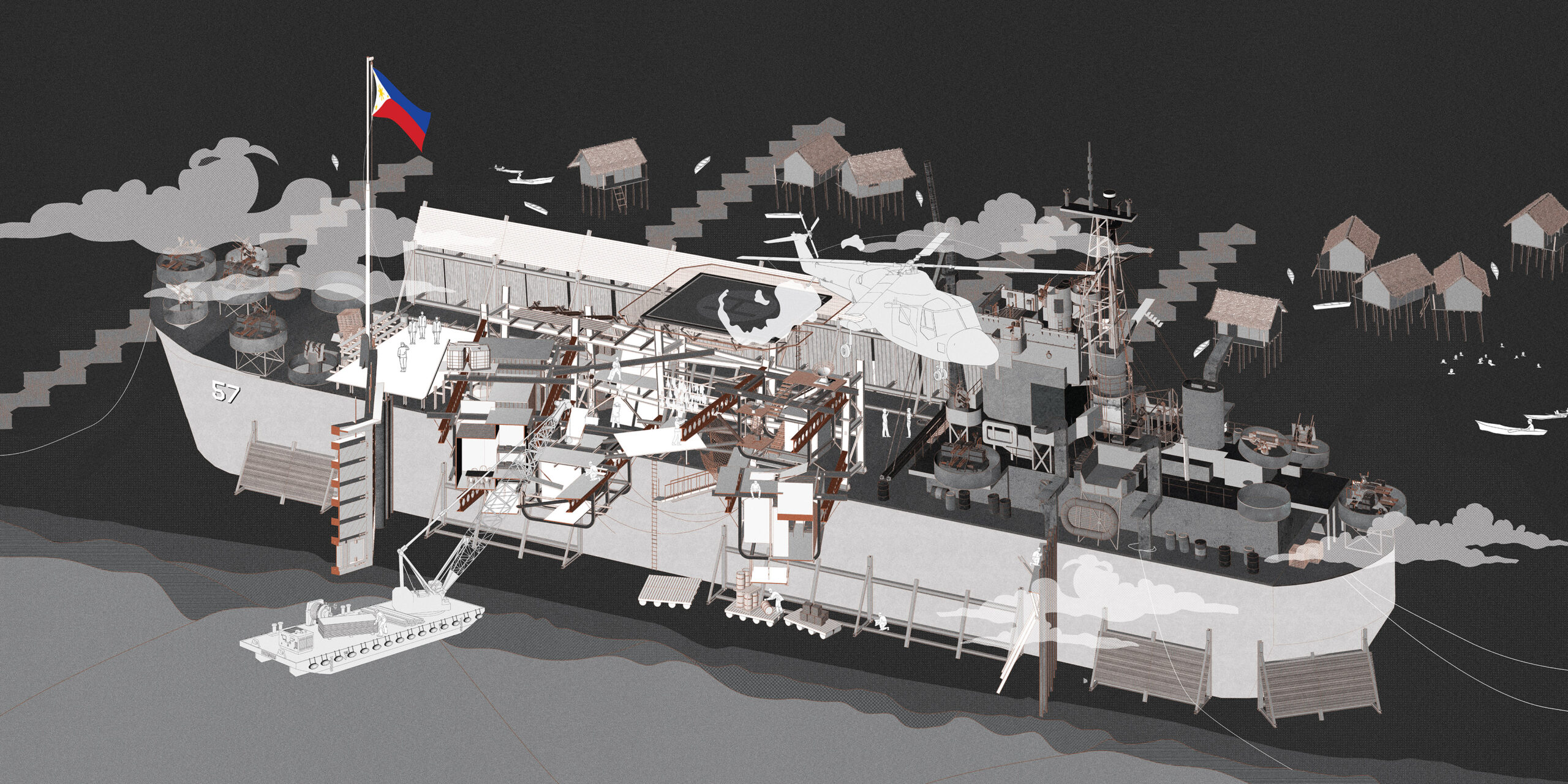
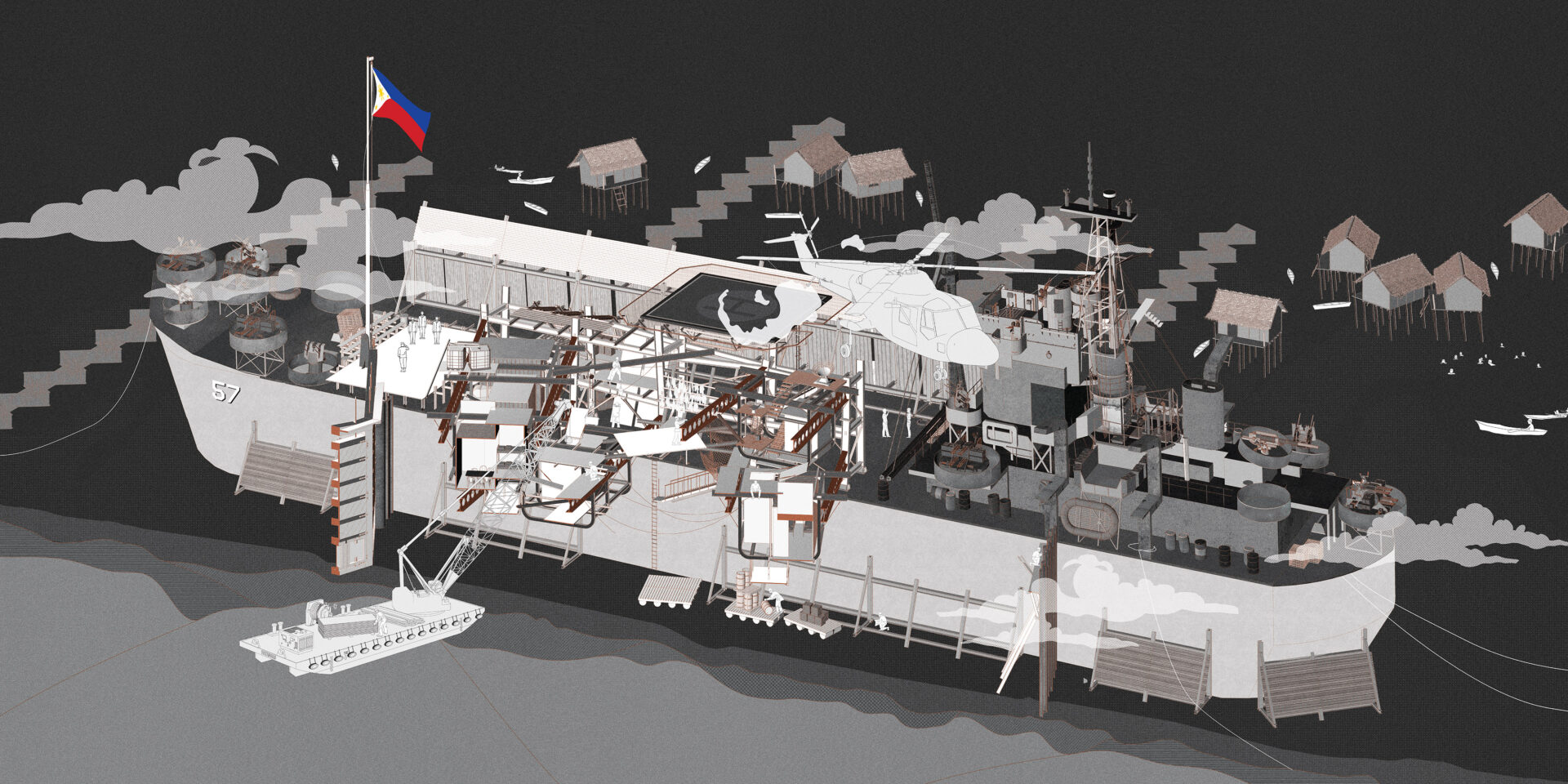
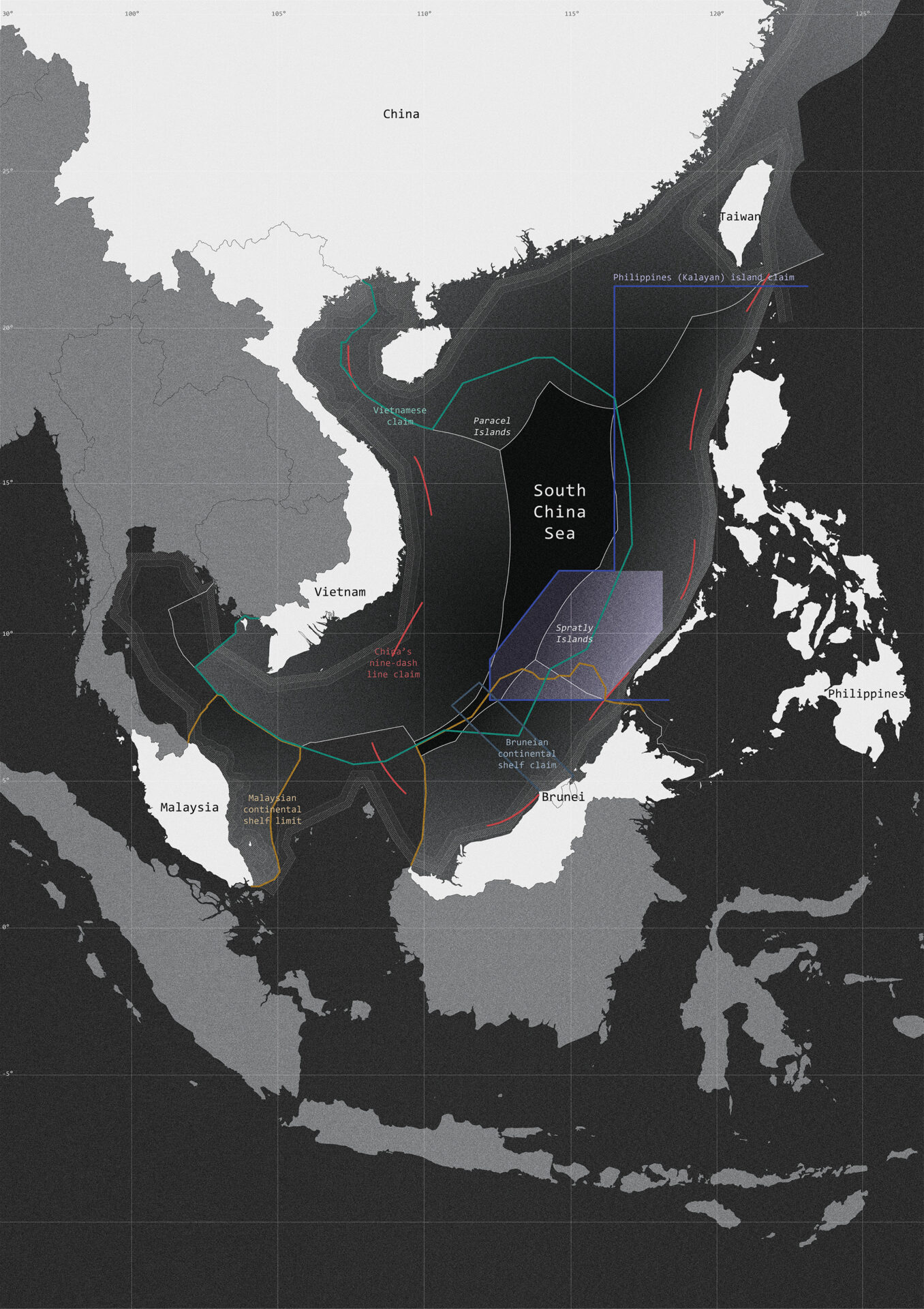
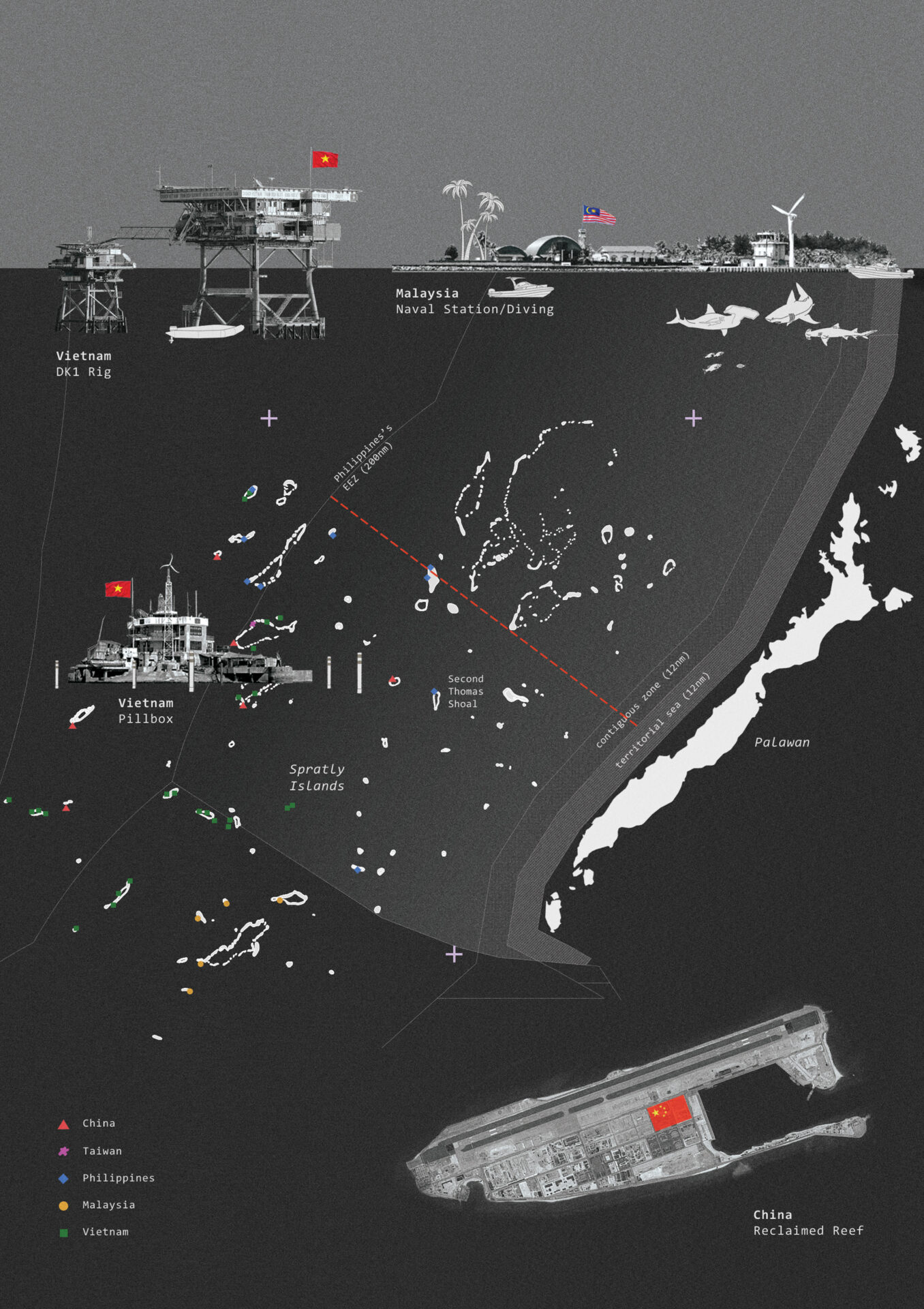


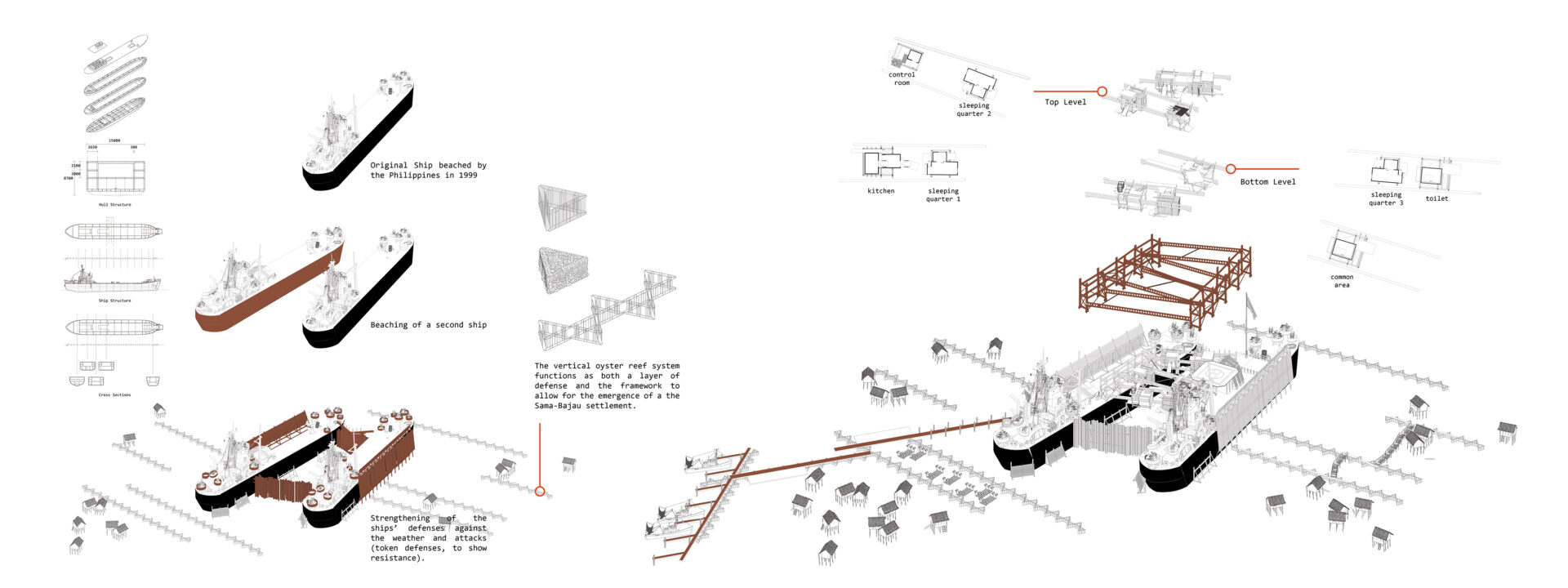
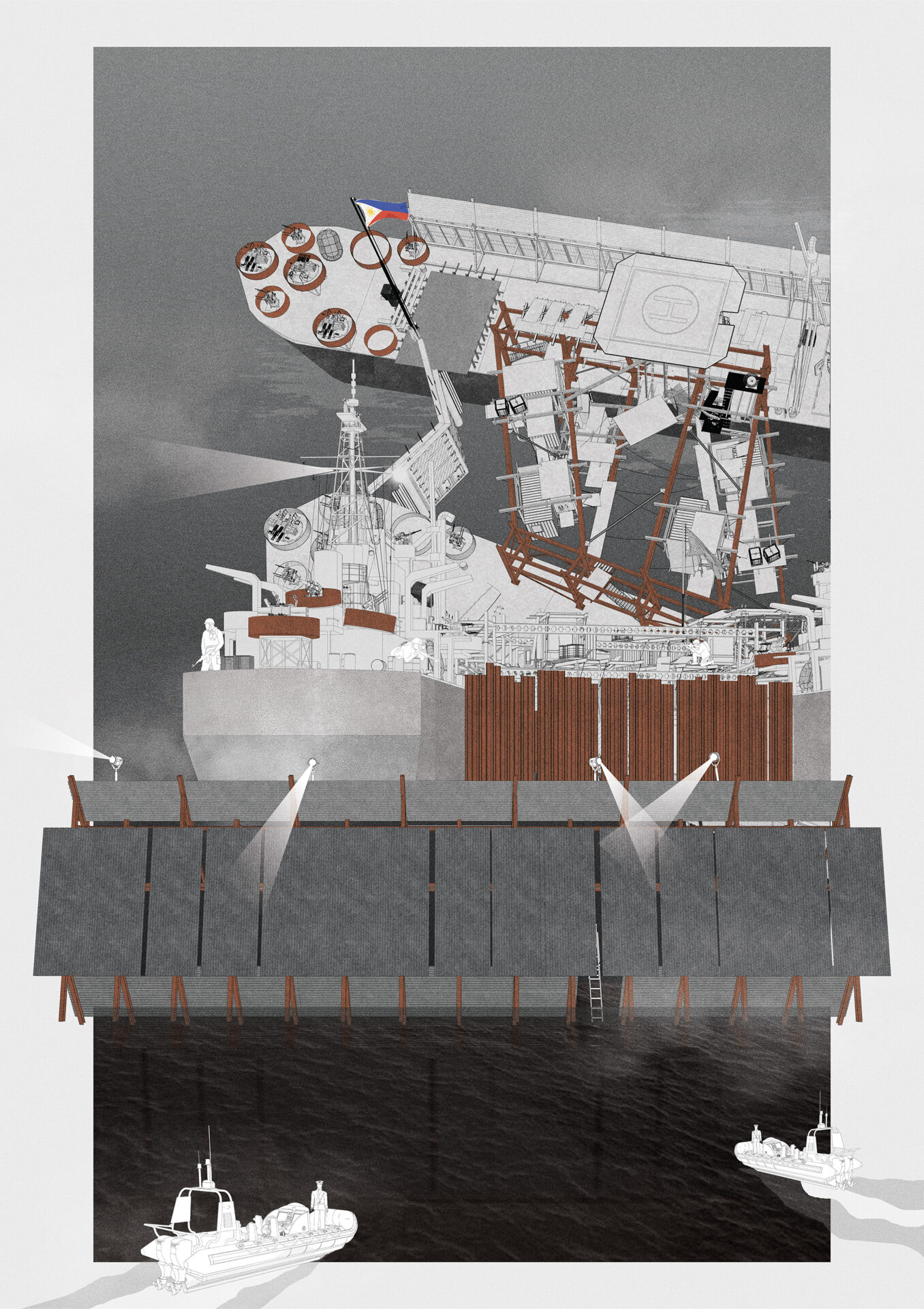



Supervisor's comments:
The project is Philippines’ attempt to secure its claim on their area of South China Sea. The Thesis Centers itself on 2 poles or limits; that of America’s binary ideology of a “Win-Lose” and the Chinese notion of a “Win-Win” formulation.
- Adj. Assoc. Prof. Bobby Wong Chong ThaiThe former may result in some fire-fight skirmishes while the latter may foster interactions and exchanges among the different communities plying the South China Sea. Hence, the thesis deals with fortification and defence on one hand and the possibilities of the coming together of different groups of people forming nascent communities never seen previously.